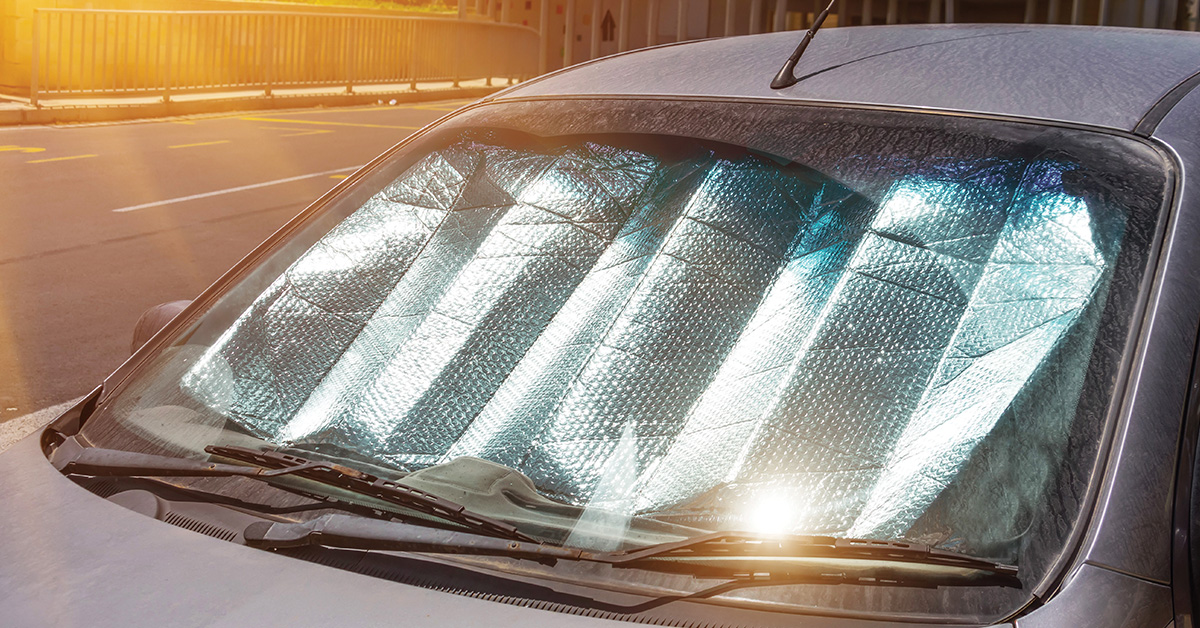Summer heat poses unique challenges for vehicles, subjecting mechanical components and materials to extreme stress that can lead to premature failure or unexpected breakdowns. Understanding how heat affects different vehicle systems helps owners implement effective protection strategies that maintain reliability even during the hottest weather.
The Science of Heat Stress
Modern vehicles operate through complex interactions between mechanical, electrical, and chemical systems, each affected differently by extreme temperatures. Engine components expand under heat, potentially changing critical clearances and affecting performance. Fluids become less viscous, potentially reducing their protective capabilities. Electronic components can experience reduced efficiency or complete failure when operating temperatures exceed design parameters.
Cooling System Preparation
Your vehicle’s cooling system serves as its primary defense against heat-related problems. Think of the cooling system as your car’s circulatory system, with the water pump acting as its heart. This system must maintain proper engine temperature while dealing with both internal heat from combustion and external heat from ambient conditions. Ensuring its optimal function requires understanding several key components and their maintenance needs.
The radiator plays a crucial role in heat dissipation. Over time, radiator passages can become restricted by mineral deposits and debris, reducing cooling efficiency. Professional cooling system flushing removes these deposits while allowing inspection of internal components. Consider replacing older coolant with modern formulations specifically designed for extreme temperature conditions.
Pay particular attention to coolant concentration levels. While it might seem counterintuitive, proper antifreeze concentration proves crucial for summer operation. Modern coolants contain additives that prevent corrosion and help transfer heat more effectively. Having these levels professionally tested ensures optimal protection against both heat and internal component deterioration.
Battery Care in High Temperatures
Heat accelerates chemical reactions within batteries, potentially reducing their lifespan and reliability. Modern batteries contain sophisticated chemistry that requires careful management in extreme conditions. Have your battery professionally tested to evaluate its condition and charging system performance. Weak batteries often fail during hot weather when increased electrical demands from air conditioning and cooling fans strain their already diminished capacity.
Consider upgrading to a battery specifically designed for extreme temperature operation if you frequently experience very hot conditions. These batteries typically feature enhanced internal construction and more robust plate designs that better withstand heat stress. Professional installation ensures proper fitment and configuration of charging system parameters.

Tire Considerations for Hot Weather
Tire performance and safety significantly depend on proper inflation and condition. Heat causes air pressure to increase, potentially leading to handling problems or premature wear if tires were improperly inflated when cool. Understanding proper tire pressure management proves crucial for both safety and performance.
Check tire pressures during cool morning hours to obtain accurate readings. Remember that recommended pressures assume cold tires, so measurements taken after driving may be misleading. Consider upgrading to tires with higher temperature ratings if you frequently drive in extremely hot conditions or carry heavy loads.
Air Conditioning System Preparation
Air conditioning does more than provide comfort – it helps maintain driver alertness and safety during hot weather. Modern air conditioning systems integrate complex electronic controls with mechanical components that require proper maintenance for reliable operation. Having the system professionally evaluated before extreme heat arrives can prevent uncomfortable and potentially dangerous failures.
Pay attention to air conditioning performance before problems become severe. Reduced cooling output or unusual noises often indicate developing issues that prove easier and less expensive to address early. Consider having the system evacuated and recharged with fresh refrigerant if it hasn’t been serviced recently, as this process removes moisture and contaminants that reduce efficiency.
Oil Selection for Summer Operation
Motor oil plays a crucial role in protecting engine components, and its performance becomes even more critical during hot weather. Modern engines often specify particular oil grades and specifications based on operating conditions. Consider switching to oil specifically formulated for high-temperature operation if you frequently experience extreme heat.
Understanding oil viscosity ratings helps make informed choices about summer oil selection. The second number in multi-grade oil specifications indicates high-temperature viscosity characteristics. Higher numbers generally provide better protection in extreme heat, but always follow manufacturer recommendations for proper grade selection.
Belt and Hose Inspection
Rubber components like belts and hoses become particularly vulnerable during hot weather. Heat accelerates aging and can cause these components to fail suddenly. Visual inspection can identify developing problems before failure occurs. Look for signs of cracking, glazing, or deterioration, particularly on components more than a few years old.
Consider replacing older belts and hoses proactively if they show any signs of aging. The cost and inconvenience of scheduled replacement prove far less than dealing with failures during travel. Professional inspection can identify potential problems that might not be visible to untrained observers.
Electronics Protection
Modern vehicles rely heavily on electronic systems that can be affected by extreme heat. Consider adding window tinting or using reflective windshield covers when parked to reduce interior temperatures. These measures help protect both comfort systems and critical electronic components from heat-related stress.
Some vehicles benefit from additional cooling measures for electronic components. Professional installation of supplemental cooling solutions might prove worthwhile for vehicles regularly operated in extreme conditions or those carrying heavy electrical loads from accessories.
Emergency Preparation
Despite best preparations, extreme conditions can still cause problems. Maintain an emergency kit specifically designed for hot weather travel. Include extra coolant (premixed to prevent mixing errors), basic tools, a quality flashlight, and emergency contact information for professional assistance.
Consider adding a battery-powered fan and extra water to your emergency supplies. These items can prove crucial if mechanical problems leave you stranded in hot conditions. Remember that prevention through proper maintenance provides the best protection against heat-related problems.
Regular maintenance and proactive preparation help ensure reliable vehicle operation even during the hottest weather. Understanding how heat affects different vehicle systems allows owners to implement effective protection strategies while maintaining awareness of potential problems. Remember that professional inspection and service often prove worthwhile investments in preventing heat-related failures.
















Add Comment